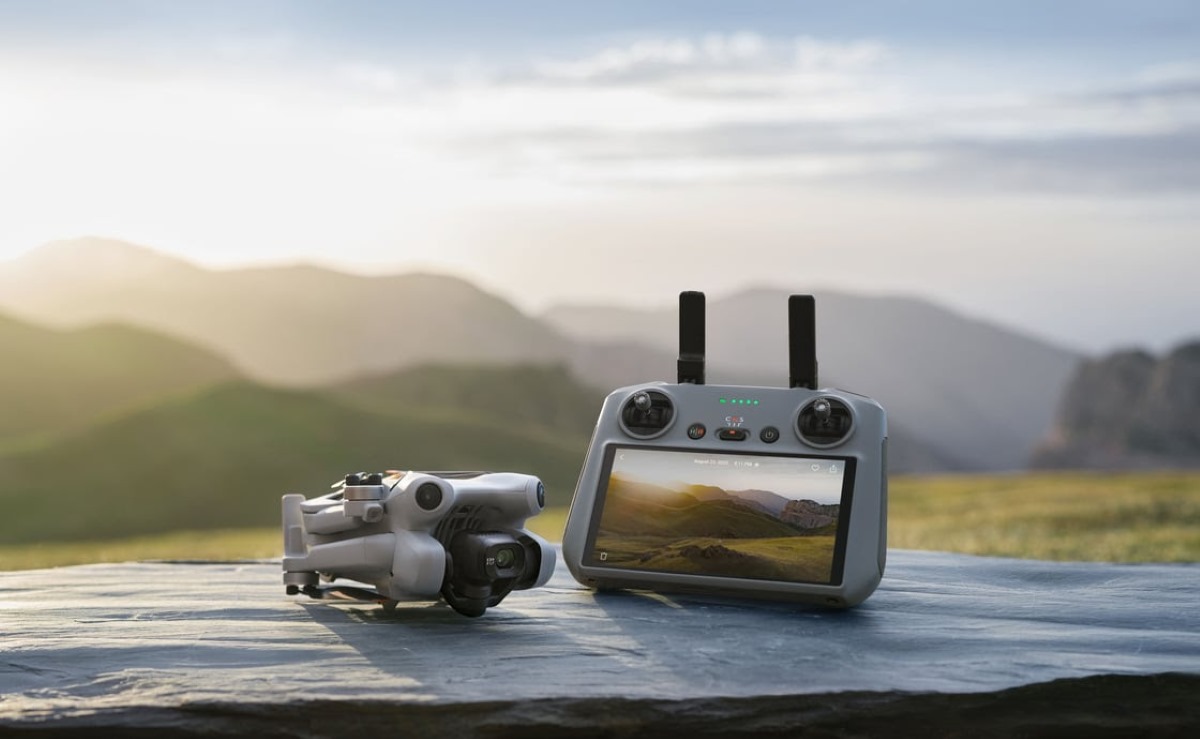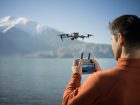
As Capitol Hill debates the Countering CCP Drones Act (HR 2864), an increasing number of industry professionals are coming forward to voice their opinions about the adverse effects of a potential ban on DJI drones. The latest to oppose the bill is Travis Waibel, CEO and founder of Advexure — one of the largest drone dealers and integrators in the country. He says the proposed legislation isn’t about data security at all. Then what is it about? Read on…
Update: DJI ban passes House and moves on to Senate.
Since its founding in 2012, Advexure has provided cutting-edge drone solutions to thousands of public safety agencies as well as various commercial and enterprise users. If there’s one thing that spending over a decade in the drone industry has taught Waibel, it’s the importance of innovation and free-market competition.
Companies like DJI have been at the forefront of the global drone revolution, offering superior products that meet the diverse needs of those who protect us. The Countering CCP Drones Act, however, threatens to disrupt this progress. Before explaining how, Waibel stresses:
To be clear, I work for our customers. I don’t work for investors, I don’t have a VC to please, and I’m not controlled by any one company or industry. Conversely, VC-driven manufacturers aren’t working to serve you, an operator, drone pilot, program coordinator, or first responder in the drone industry; they need to show returns for their investors.
First responders’ concerns on the DJI drone ban
Waibel says that public safety officials, many of whom cannot publicly oppose the legislation due to their positions, have expressed serious concerns to him in private. One police officer with over 15 years of experience, who is also a founding member of his department’s drone team, has lamented that the legislation would take away life-saving equipment, jeopardizing public safety for political gain.
The officer notes that DJI products are far superior to any domestic alternatives, and the supposed security concerns have been exaggerated. The lack of concrete evidence supporting these concerns further underscores the flawed nature of the bill. Instead of legislating these tools away, the officer argues that Congress should focus on funding and encouraging domestic companies to produce competitive drones.
The problem is that despite significant efforts, US-made drones still lag behind their Chinese counterparts in technology, reliability, and affordability. As Waibel explains, companies like Freefly, Watts Innovations, Inspired Flight, and TEAL have made progress, but their products are often priced much higher than DJI drones. This price disparity is a significant barrier for many public safety agencies operating on tight budgets.
Waibel emphasizes that the market operates on free trade principles, where competition drives innovation. Forcing public safety agencies to use inferior and more expensive domestic products would hinder their ability to perform effectively. The Countering CCP Drones Act undermines this fundamental principle, prioritizing protectionism over practical considerations.
Data security concerns or battle for market share?
The security concerns cited by proponents of the bill are largely unfounded, Waibel says. DJI drones have had local data and offline modes for years, allowing them to operate without internet connectivity. Moreover, lawmakers themselves continue to use various Chinese-made technologies without issue. The focus on DJI drones seems more politically motivated than based on genuine security risks.
Waibel argues that if data security were a genuine concern, specific practices and standards would be discussed. Instead, the debate lacks these crucial elements, revealing the true motive behind the legislation: political gain and market manipulation.
Waibel is also quick to add that the push for this legislation can be traced back to companies like Skydio and BRINC as well as associations like AUVSI, which have invested heavily in lobbying efforts to sway policy in their favor. These entities seek to stifle competition rather than innovate and win based on product merit. This political maneuvering endangers lives by depriving public safety agencies of the best tools available.
Waibel points out the hypocrisy of these actions, noting that even Blue sUAS, Green UAS, and NDAA-compliant drone platforms contain Chinese-made components. The initial solution was designed for the Department of Defense, not public safety operators. The unique needs of public safety agencies are being overlooked in favor of protectionist policies that do not serve the public interest.
Another critical issue is the scalability of domestic drone manufacturers. Advexure has witnessed significant delays in delivery times for US-made drones, contrasting sharply with the efficiency of DJI and other foreign manufacturers. These delays can severely impact public safety missions, where timely access to technology is crucial.
For instance, a state agency experienced a nearly year-long delay in receiving Blue UAS drones, highlighting the challenges of relying solely on domestic suppliers. This inefficiency is unacceptable, says Waibel, particularly for public safety agencies that need immediate access to advanced technology.
Related: DJI ban highlights supply chain issues in US drone market
It’s time to put politics aside
The debate over the Countering CCP Drones Act highlights the need to prioritize public safety and market principles over political motives. The focus should be on software security and ensuring that drones, regardless of their origin, operate safely and securely. Protectionist policies are un-American and stifle innovation and free choice.
Waibel urges the drone industry and public safety agencies to voice their opposition to this misguided legislation. The future of the drone industry and the safety of our communities depend on common sense and innovation, not political maneuvering.
Read the complete argument against HR 2864 in Waibel’s words here.
FTC: We use income earning auto affiliate links. More.






Comments